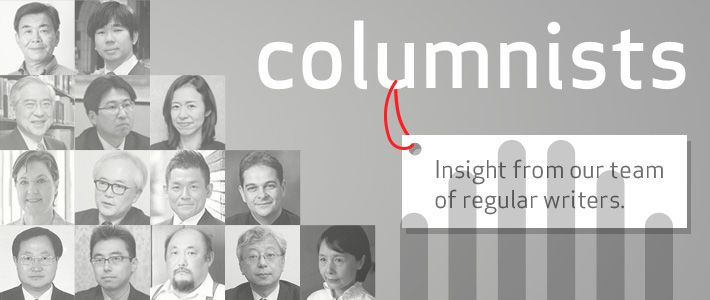
Hollande and Abe to Strengthen Franco-Japanese Ties
Politics- English
- 日本語
- 简体字
- 繁體字
- Français
- Español
- العربية
- Русский
French President François Hollande visited Japan for talks with Prime Minister Abe Shinzō from June 6 to 8, 2013. It was the first official visit by a French president to Japan in 17 years, following the trip made by Jacques René Chirac in 1996.
The Changing Diplomatic Orientation of France
The two leaders issued a joint statement on June 7 calling for bilateral cooperation on the development of nuclear technology and military equipment, and for greater collaboration in security fields. President Hollande’s strategy toward Asia suggests a shift away from the China-oriented diplomatic line of his predecessor, Nicolas Sarkozy, who did not visit Japan except to attend the G8 Hokkaidō Tōyako Summit in 2008.
Immediately prior to President Hollande’s arrival in Japan was the 24th anniversary of the Tiananmen Square Incident on June 4, 1989. According to an article in the May 4 issue of the Asahi Shimbun, some members of President Hollande’s French Socialist Party have expressed concerns about the human-rights record of China, which continues to be ruled by a one-party dictatorship that limits freedom of speech. The Socialist Party has placed an emphasis on the core values of human rights, democracy, and the rule of law. This seems to suggest a shift toward placing a greater diplomatic emphasis on relations with Japan.
At the same time, though, France does not want to distance itself from China, a country that, despite its serious wealth disparities, has the world’s second largest gross domestic product. France seems to be charting a course toward multilateral diplomacy, aiming to balance its national economic interests with international norms of justice.
The government of Prime Minister Abe, for its part, is seeking to beef up its diplomacy by reinvigorating relations with France—a key nation in the European Union and a permanent member of the UN Security Council—while also globally showcasing “Abenomics” as a path to economic growth. The Abe administration is also clearly hoping that bolstered ties with a fellow leader in nuclear energy like France will help to reverse the policy of phasing out nuclear power, proposed by the preceding Democratic Party of Japan government, and to dampen the domestic criticism of nuclear energy. Japan is set to develop joint military equipment with France, as it has already done with the United States and Britain. In this way, Japan and France intend to boost their political, security, and economic ties.
Franco-Japanese Cooperation in Africa
 President Hollande and Prime Minister Abe shake hands after issuing the joint statement. (Photo: Reuters/AFLO)
President Hollande and Prime Minister Abe shake hands after issuing the joint statement. (Photo: Reuters/AFLO)
Along with the positive outcomes listed above, the talks between the two leaders also clarified the importance of Africa in enhancing relations between Japan and France. North Africa and the Middle East have been viewed as a key region for Japan to build on its cooperative relations with the EU, but in recent years China has been rapidly building its presence on the African continent. In addition to its economic potential, Africa is a vital hub in terms of international security. France’s long history of involvement in Africa has given it a unique information network in the region, while Japan’s chief advantage is the positive image it enjoys among African nations. If Japan and France can find a way to cooperate on the continent, the benefits for both and for the nations of Africa could be substantial indeed.
Just a few days before the arrival of President Hollande, from June 1 to 3, the Japanese government hosted the fifth Tokyo International Conference on African Development (TICAD V) in Yokohama. One of the aims was to enhance Japan’s presence in Africa through bilateral talks with the leaders of some 40 African nations. The “Yokohama Declaration” issued at the conference made reference to adapting energy policy to a broader effort to support infrastructure development in Africa. Although no specific mention of nuclear energy was made, the reference to energy seems to reflect the Abe administration’s intention to promote sales of nuclear energy in the future.
The talks between Prime Minister Abe and President Hollande also resulted in a “road map” for Franco-Japanese cooperation, which included cooperative efforts to raise the presence of both nations in Africa. One specific example was the pledge for joint anti-terrorism initiatives in the Sahel region of Africa, which includes Mali—a country in which France intervened militarily in January 2013. On June 7, President Hollande delivered a speech to the Diet in which he touched on these Japanese initiatives for African development and stressed the need for Franco-Japanese cooperation in Africa.
Cultural Diplomacy
Japan is working toward signing an Economic Partnership Agreement and a Free Trade Agreement with the European Union. France, naturally, has made it clear that it will provide whatever support is necessary so that these agreements can be reached as soon as possible. In his speech to the Diet, President Hollande spoke of France’s desire to forge even closer bilateral ties with Japan and strengthen cooperation in the areas of diplomacy, security, and the economy. An emphasis was also placed on building close cultural ties. Japan, for its part, views France as a key global partner for its cultural diplomacy, drawing on French interest of Japanese pop culture such as manga and anime.
(Originally written in Japanese on June 11, 2013.)
Japan Sakai Kazunari Africa prime minister Francois Hollande summit France diplomacy president Jacques René Chirac